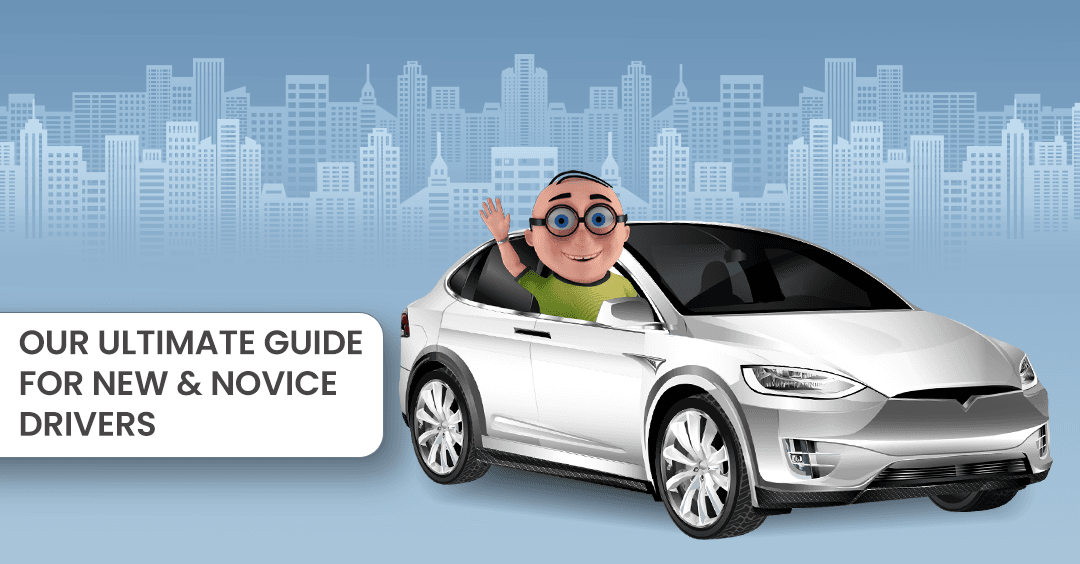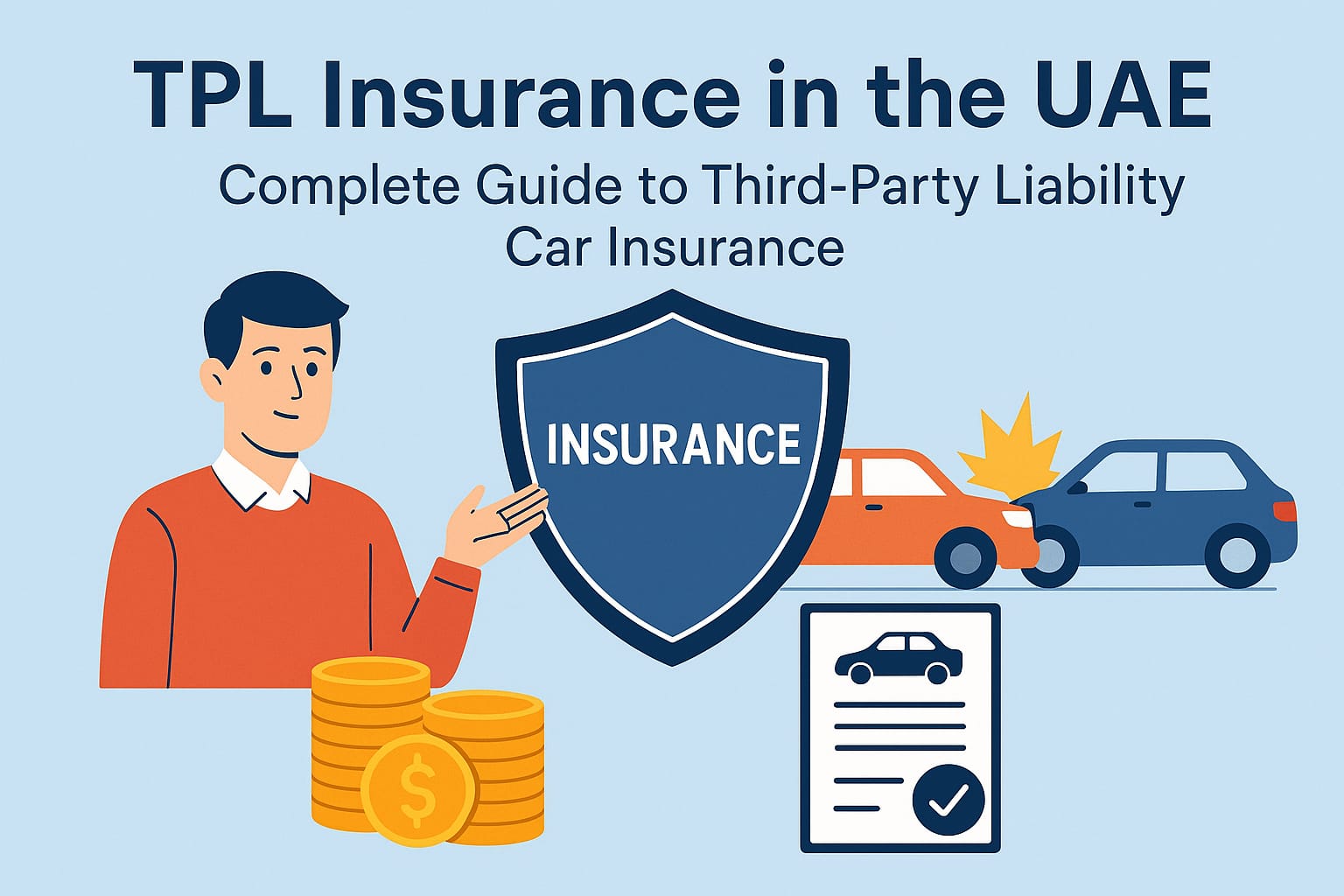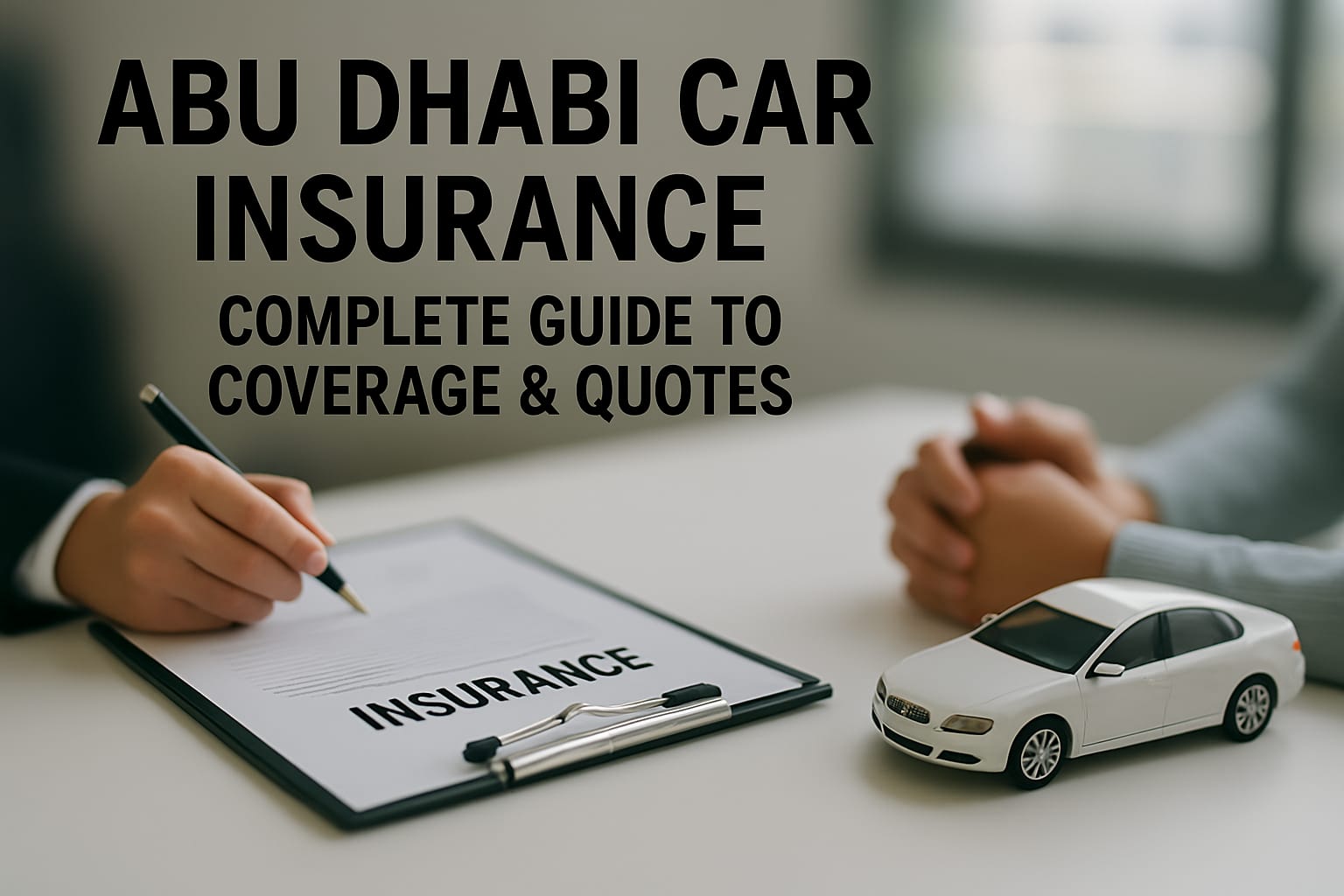So, after months of lessons, and hours of study getting to grips with road signs, rules and regulations, the day of your test has arrived….and you’ve passed! Congratulations! But a word from the wise. Whilst you might want to celebrate your new-found freedom by taking your friends out for a spin, your mum to the mall or even make a road trip to a neighbouring emirate, you need to stop and reflect for a moment. Passing your driving test is only the beginning to your life on the road. The real learning starts now!
Passing your driving test is only the beginning to your life on the road, and securing car insurance for new drivers in UAE is one of your first important steps. The real learning starts now!
Burn rubber, not dirhams
We all know that buying a car is a big purchase. In fact, it’s one of the most expensive things we’ll ever buy. But don’t forget to consider the total cost of car ownership. Remember, it’s not just the cost of purchasing the vehicle; you need to consider running costs such as fuel, maintenance, Salik, and, last but not least, new-driver car insurance.
As a new driver, these will all be first-time costs, so whilst you might be longing for a luxury car, it makes sense to start small and dream big by finding a fuel-efficient, economical car that’s inexpensive to insure. Car insurance for young drivers tends to be higher, so choosing a modest vehicle can help reduce your young driver insurance premiums significantly.
Understanding car insurance for new drivers in Dubai is crucial. While premiums may seem high initially, comparing quotes from multiple providers and maintaining a clean driving record will help you secure better rates over time. Many insurers offer special considerations for young driver insurance policies, including driver training discounts and good-student benefits.
Get to grips with your vehicle
It’s unlikely that you learned to drive in the same make and model of vehicle as the one you’re looking to purchase, so chances are you’ll probably be buying a new, and somewhat unfamiliar vehicle.
Time getting to know the basics of your car is time well spent. Check that you know how to:
- Switch on the AC
- Use the directional indicators
- Turn on the windshield wipers
- Learn about the lights, such as using full beam and fog lamps
- and most importantly, the location of the fuel cap and how to open it!
A good idea is to go out when it’s quiet (early morning is good) to get used to being in charge of the car and its controls. Driving is all about knowledge, experience, and confidence so the more confident and comfortable you feel, the better your driving will be: as will your ability to deal with difficult, unforeseen traffic situations.
Taking care of your car
Regular maintenance is a must for many reasons:
- First, it keeps you safe. Having your car running in good working order is important, so checking that the essentials are working, as well as the safety features functionality, such as seatbelts, is critical
- Second, conducting a minimum of monthly checks on your car means you’ll spot potential issues when they are relatively small, and this could save you on big garage bills later
In terms of simple maintenance, a good place to start is:
- Fluids: oil, coolant, screen wash and transmission fluid levels should all be checked and you should know how to top them up
- Windshield wipers: do they look in good condition, fixed correctly, enough rubber on the blades, arms correctly aligned
- Tyres: are the treads healthy and uncracked, are the treads the correct depth, are the tyres the correct pressure (front and back are usually different), are the valves in good condition
Monthly maintenance like this is key but you should also have your car serviced at least once a year at a suitable garage. It’s a good idea to coincide this with your annual vehicle registration so
co-ordinate your diary and ensure your vehicle is in tip top condition to pass its mandatory inspection.
Spot the signs of trouble
Take a trip around your car’s dashboard. Understanding the various warning lights means you’ll always be aware of any issues your car is telling you about. Listen to the noises your car makes too: how does it sound when it’s running normally? You’ll be able to hear then if something is going wrong, like engine knocking, tyres sounding different on the road surface, squealing brakes etc.
Also check the ground on which you park before and after. Engine oil and coolant fluids can leak from underneath so if there’s a fresh patch on the ground under your vehicle it could be worth checking out.
Get your car checked as soon as you suspect there is an issue as this could save you time, money and inconvenience later.
Be ready, whatever the weather
We all agree that summer in Dubai can be scorching, so check on your coolant and your AC regularly to stop your engine, and yourself, overheating! Top tip though: cool your car to the desired temperature and then switch off the AC when you feel comfortable, as it’s a fuel burner!
Did you also know that tyres are also highly susceptible to heat? Hot weather can make them weaker so check them regularly, paying particular attention to their pressure.
Finally, from a safety perspective, always keep a pair of sunglasses in the storage compartment of your car. The sun’s glare in the summer can be blinding so being able to see where you are going without impairment is essential.
What about winter?
Just as summer can be hazardous, driving in the winter months can also have its hidden dangers. Sudden, unexpected rainfall here in the UAE can be particularly treacherous, especially since the roads are prone to flash flooding.
If you feel uneasy at any time and fearful of the conditions, pull over to a safe place when you can and wait for the weather to start to subside. Take care of surface water and try to avoid any waterlogged roads: paying particular attention to oncoming traffic that can create a wave of water that could enter your engine.
In darker evenings, make sure your lights are clean and bright and your registration plate clean so it is easily visible. This also applies to those unexpected foggy days in Dubai when visibility can be poor.
Sheikh up your skills
One of the most daunting things as new or inexperienced driver in Dubai is driving on Sheikh Zayed Road. Whilst it’s not technically demanding as it’s a straight road, the speed of other vehicles can make it seem scary and there are other considerations such as Salik gates and finding the right exit to deal with.
Mastering highway driving is a matter of competence and confidence, so build up both by facing your fears and using this, and other similar type roads, as soon as you can. With the correct level of care and attention, you’ll find you can negotiate them with no issues.
Fix your focus
When you first start driving, be aware of anything that can distract you. Whilst it’s fun to have friends in the car, concentrating on talking to them can affect your concentration on the road, so it’s a good idea to keep passengers to a minimum.
Other cognitive distractions include loud music in the car and any devices, such as mobile phones. Don’t be distracted by your phone or check it whilst driving: this attracts penalties in the UAE, so avoid it at all costs. If your car has Bluetooth/hands-free capability and the call is urgent, this can be a safe option if absolutely necessary.
Prior preparation
Whenever you leave home, think about the journey you’re about to make. It’s always advisable to:
- Put the route into your sat nav or mobile phone so you’re clear on the route you’re taking
- Familiarise yourself with alternative routes in case of accident or issue (check GoogleMaps before you leave home as a good source of information and estimated arrival time)
- Check the weather conditions
- Allow plenty of time for your journey – better to arrive early than not at all!
- Make sure you have water – staying hydrated is important for focus
- Keep some cash in the car for any minor emergencies
Final Thoughts
We all know that car insurance for new drivers in Dubai is usually expensive because novice drivers:
- Lack experience
- Lacks proven driving capability
- Can make greater errors of judgment that lead to accidents and consequential claims
The only way to lower your car insurance for new drivers in UAE premiums in future is to demonstrate that you are a capable, careful and confident driver by being claims free. Following some of the top tips shared in this blog should set you on that road. Happy Motoring!







